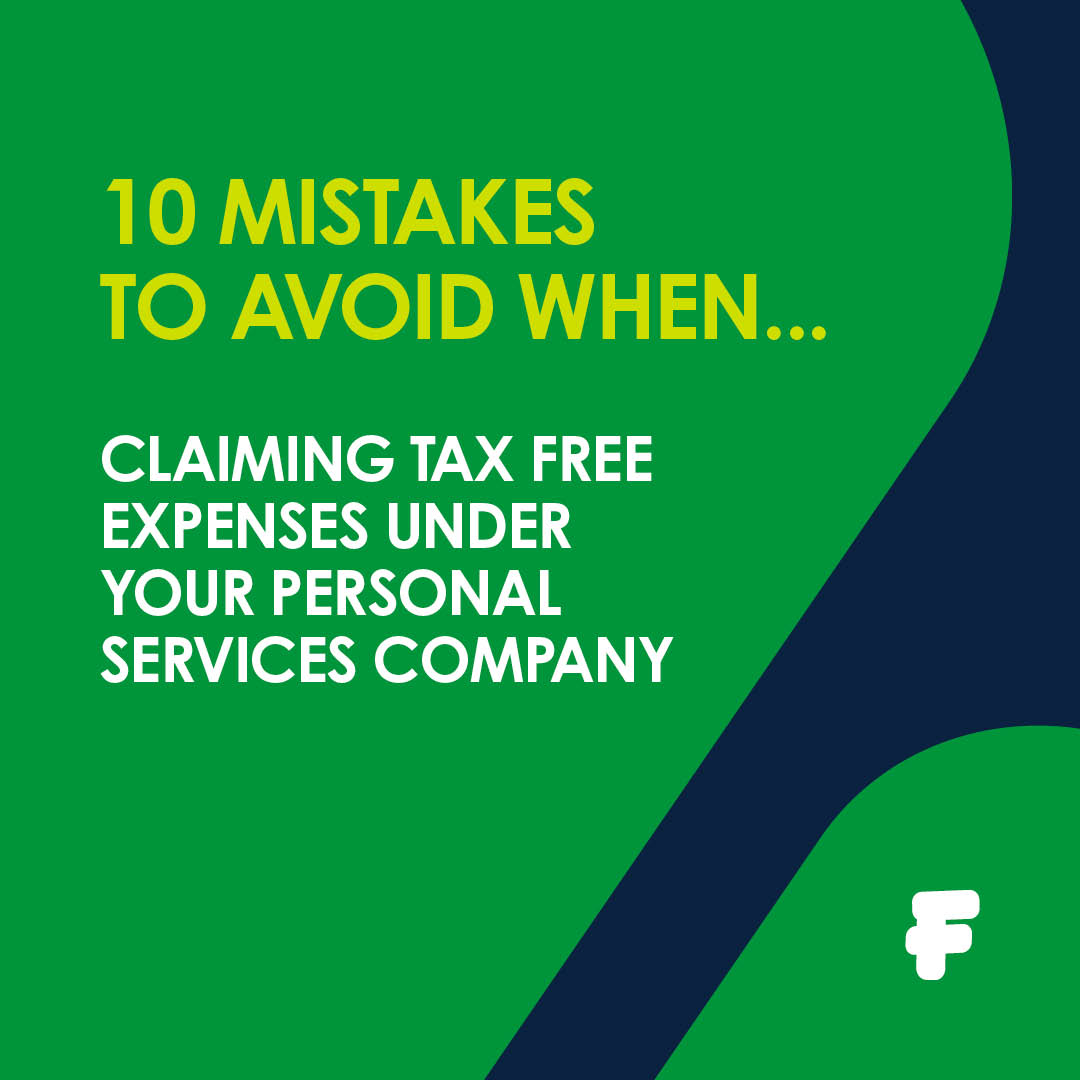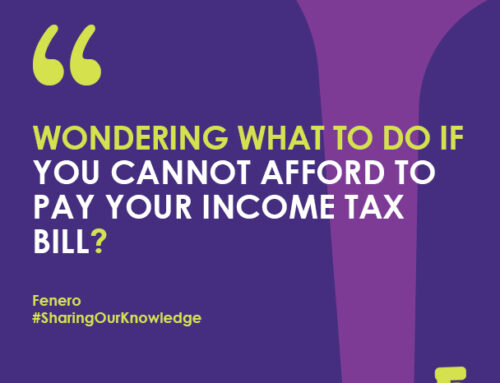Running your own limited company gives you the opportunity to reduce your tax bill through valid business expenses. But Revenue has strict rules about what qualifies — and how you need to document it. Here are 10 common mistakes we see contractors make, and how to avoid them.
1) Treating your company account like a personal wallet
When you use company funds for personal expenses — like groceries or streaming subscriptions — you’re blurring the line between your finances and the company’s. This is one of the quickest ways to get into trouble with the tax authority.
What to do instead
Only use company money for legitimate business expenses. If you need to take out funds for personal use, do it through proper salary or expense claims.
2) Misunderstanding your “normal place of work”
Some contractors mistakenly claim mileage or subsistence between their home and their regular work site — which isn’t allowed.
What to do instead
Only claim mileage for travel to temporary work locations. And when working out your claim, use the shorter distance between your home and the temporary site, or your regular work location and the site.
3) Using the same mileage rate all year
Mileage rates drop significantly once you go over 6,437km in a calendar year — and forgetting to adjust can cost you.
What to do instead
Track your kilometres carefully. Once you hit 6,437km, switch to the lower rate so your claim stays compliant.
4) Claiming Irish subsistence rates for foreign travel
Contractors often stick to the usual Irish subsistence rates even when they’re travelling abroad — and miss out on higher, legitimate claims.
What to do instead
Use the international subsistence rates set by Revenue. They’re usually higher and fully allowable for business travel.
5) Paying someone who doesn’t contribute to the business
If your spouse or a friend is on the payroll but doesn’t actually do work for the business, that payment can be challenged as tax avoidance.
What to do instead
Only pay salaries that reflect real work. Make sure the pay is appropriate for the person’s role, skills, and hours worked.
6) Reimbursing yourself before you claim
Taking money out of the company before completing an expense claim form is a technical misstep that could cost you later.
What to do instead
Submit your expense claim first, with full details. Only reimburse yourself once the claim is complete and documented.
7) Claiming meals and drinks with friends
Grabbing a bite with friends and discussing work isn’t enough to qualify as a business expense.
What to do instead
Only claim for hospitality involving real business contacts — like clients, suppliers, or prospects. You’ll also need to document who attended and the business purpose. Need more detail? Read our full guide on Claiming business entertainment expenses: https://www.fenero.ie/knowledge-hub/claiming-business-entertainment-expenses/.
8) Claiming rent without a proper home office
Using the kitchen table doesn’t count. Revenue requires that your home office meets two conditions — and both must be in place.
What to do instead
To claim rent, you need:
1. A separate, dedicated room used exclusively for business
2. Evidence that the space is used for work, regularly and meaningfully
Simply having a spare room isn’t enough — you must actively run your business from it.
9) Buying too much tech
Submitting multiple laptop or gadget claims can look suspicious — especially in a one-person company.
What to do instead
Stick to the equipment you genuinely need. If you’re claiming more than one similar item, be ready to explain how each is used for your business.
10) Claiming relocation expenses that don’t qualify
Moving house for convenience or lifestyle reasons won’t cut it — even if you’re starting a new contract.
What to do instead
You can only claim relocation costs if the move is essential for your work. That usually means starting a contract in a new region where relocation is clearly necessary.
Bonus tip: when in doubt, ask
Claiming legitimate business expenses is one of the smartest ways to reduce your tax bill. But the rules are there for a reason — and they’re not always obvious.
If you’re not sure whether something qualifies, just ask. We’re here to help.
Ready to get a handle on your expenses?
For further advice from one of our contractor experts, contact us on hello@fenero.ie or 01-6877400.






